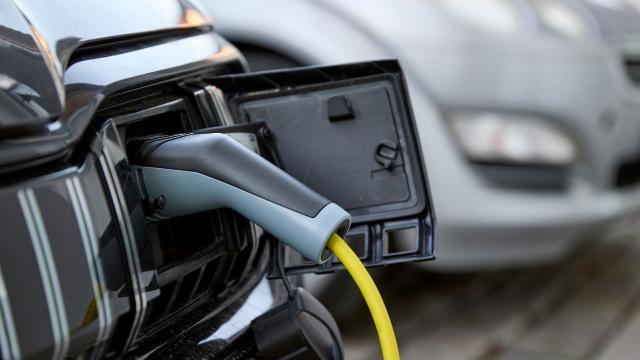Electric cars are a big part of how we’ll see the green energy future emerging in Australia, at least according to Ed Husic, Labor’s Shadow Minister for Industry and Innovation.
Coming up on an election this year, Labor has put forward an electric vehicles policy with a big focus on simply switching people over to the new technology. It’s a very ambitious policy.
Husic believes we stand at a bit of a crossroads. For a while, Australia had a strong manufacturing workforce, but with the loss of local Holden, Ford and Toyota manufacturing, this workforce has withered away into other industries. Husic reckons we can bring Australia’s car manufacturing industry back with a green future.
“A big part of that as well is around opening up the potential for domestic EV manufacturing,” Husic told Gizmodo Australia.
“We’re putting on the table $3 billion in the form of either loans or equity to help support that.
“So we are serious about it – we think we need to do that, because that type of manufacturing is critical to any modern economy. People are getting it, that we need to revitalise manufacturing in Australia, given what we’ve been through, and if we’re going to talk about rebuilding sovereign capability and not be a victim to disrupted global supply chains, these are the type of hard issues we need to focus on and address.”
[related_content first=”1740237″]
Bringing car manufacturing back
A quick refresher. Ford stopped manufacturing vehicles in Australia in 2016, with Holden and Toyota following suit in 2017. There were a few factors that led to this – low import tariffs, roll-on effects from the GFC and a lack of support for local car manufacturers were at the top of the list of reasons, so now Australian-made cars are but a memory. About 50,000 jobs were lost in 12 months.
But electric vehicles are a technology that’s seeing major innovation and manufacturing around the world, with various car manufacturers set to switch to fully electric within the coming years. It’s a wave that Labor wants to catch.
“It’s two things – it’s about revitalising manufacturing and lowering emissions while we do it,” continued Husic.
“By manufacturing here, we can not only create jobs and economic opportunity, but the more of the vehicles that appear on our roads, the better we do in tackling transport and the emissions that come out of transport.”
As far as EVs go, the Coalition has championed greater public and private infrastructure, including EV charging stations. Charging station infrastructure is an important aspect, with only about 3,000 estimated to exist within Australia. For comparison, the U.S. state of California has more than 73,000 public chargers. Focusing on charging stations isn’t unwelcome, however, it doesn’t address making electric cars cheaper in Australia, which Husic says he’s far more interested in.
The electric vehicle culture change
Interestingly, Australia is set to have EVs manufactured onshore within the coming years. ACE EV is hoping to produce a fleet of vehicles within the next two years entirely within Australia, with the first to hit the road later this year. When I spoke to Gregory McGarvie, the managing director of ACE EV, he stressed that Australia needs a “culture change” around electric vehicles, to compensate for the lower mileage and a change in what the vehicle does for the individual. I asked Husic what he thought of this.
“I think the culture change needs to happen at a policy level where governments take this seriously…it’s just not a niche technology that people wont embrace, we do need to support it, we do need to get cracking on it,” Husic responded. He later compared Australia to other countries in terms of EV takeup, saying that we embarrassingly lag behind.
“What we’ve said is that we would bring in tax changes to help basically encourage the uptake of EVs,” Husic added to address this.
EV incentives like this are offered at the state level. Right now, Canberra champions electric vehicle policy with subsidies, with some other states offering benefits. At a federal level, a far-reaching electric vehicle policy would complement these state-offered policies well.
Husic added that EV technology does need to continue to be improved as it’s adopted.
He stressed concerns about charging station locations and range anxiety, even though modern EV ranges far exceed the Australian daily travel average (about 38 kilometres, as pointed out by McGarvie previously).
“The technology will constantly improve with investment, but we need a market to help drive that investment and if we’re only doing 1 per cent of new car sales as EVs then it’s a problem,” Husic concluded.
